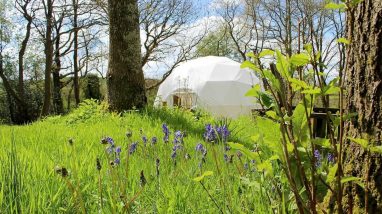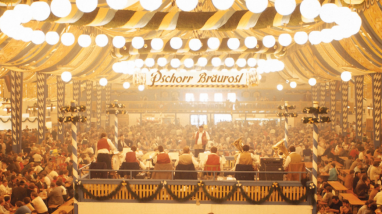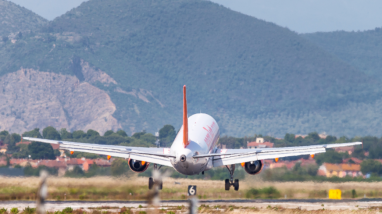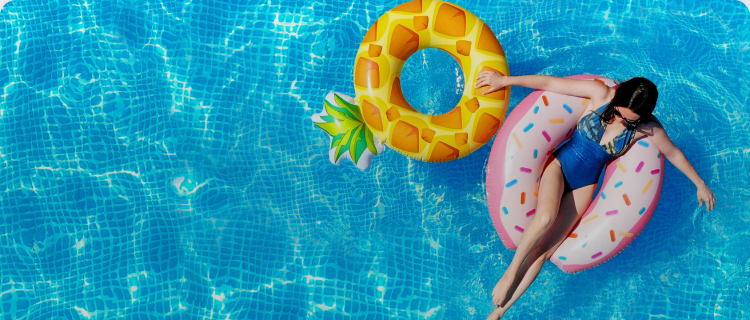Are you looking for your next camping trip to Wales? Here at Campsited we’ve put together a comprehensive Wales Travel Guide for your Camping Trip in order to help you organising your holiday.
Here’s some practical advice and tips for camping in Wales:
- Wales is a small country with some of the most beautiful scenery in the UK;
- Good international and regional transport links make travel easy;
- Currency is the British Pound Sterling (GBP);
- You can bring your car from Europe, and driving is on the left;
- Welsh is spoken by around 20% of the population;
- The weather can be changeable and it gets rainy – pack your camping gear accordingly;
- 999 is the number for emergency services
People of Wales: pride, passion and a penchant for odd-shaped balls
You are likely to receive a warm welcome in Wales. Summing up an entire nation’s culture in one sentence is impossible, but people are generally very sociable and friendly, with a keen wit. There’s a huge sense of pride in the country – and you can feel it the moment you arrive. Rugby borders on a national obsession.
Size of Wales
Wales is small: 170 miles north-south, 60 miles east-west. That’s a good thing. It makes it easy to explore the spectacular variety of scenery in the 22 principal areas of the country. Driving the width of Wales – from border to coast – will take around two hours, while driving north from Cardiff to Rhyl will take around four-and-a half hours.
Getting there
The nearest major ferry ports are Poole and Portsmouth. A crossing with Brittany Ferries from Cherbourg to Poole takes around four-and-a-half hours. Prices for two passengers and a carful of camping gear begin from £119. Then it’s a four-hour drive onto Wales, the main roads into Wales being the M4 or M50/A40 from the south and the A458 from the north. (Note there’s a toll on the Severn Bridge along the M4, which will set you back £6.50.) Flying is an option too. Various airlines touch down in Cardiff Airport including Flybe, KLM and Air France. Bristol Airport is another gateway to Wales if you need more flexibility.
Find the cheapest flights to Wales with Skyscanner, Momondo, or Google Flights: search by destination and the dates you’re traveling, to score a deal and get your camping trip to Wales started.
From London the main direct rail route is from London Paddington to Cardiff (via Bristol), with easy connections to Swansea, Carmarthenshire and Pembrokeshire. The journey takes just over two hours and can be pre-booked for around £45 return with National Rail. There are also direct trains from London Euston and Manchester to Llandudno, Bangor and Holyhead. Rather take the coach? National Express offer routes into Cardiff from London from £15.
Getting around
Once you cross the border you can expect some of the most scenic road and railway journeys in the UK. A network of main roads criss-crosses the country, taking you from city to countryside in a snap. The A483 traverses the spine of the country, while the A487 hugs the west coast. As for the north of the country, the A55 is the main artery.
The most scenic drives in Wales are among Britain’s best. If you have time, it’s worth making a detour to drive the A466 along the Wye Valley, the B4574 from Rhayader to the Vale of Rheidol or Marine Drive around Great Orme. The rail and bus links are good too. Traveline Cymru have an excellent online journey planner that will help you find the best way to your destination, no matter where you are.
Driving laws in Wales
Like the rest of the UK, in Wales you drive on the left, pass on the right. TripAdvisor has some handy tips on understanding the rules of the road.
Assuming you are visiting for fewer than six months, you can bring your car to the UK from Europe with no need for any modifications – as long as you have valid tax and insurance from your home country.
Check your insurer covers you for driving in the UK. Roads can be narrow and windy off the beaten track, so give yourself plenty of time to arrive at your destination. And road signs are printed in both English and Welsh.
Language in Wales
Wales might only be a short hop across the border from England, but it has a language all of its own. Welsh is spoken by around 20% of the population and the country is officially bilingual. Generally speaking, the further north you go the more likely you will hear the native patter – one of the oldest languages in the world. But don’t worry if your tongue can’t perform the necessary aerobics. You’ll get by just fine with English.
Money in Wales
Who’s getting lunch in? Wales uses the same currency as the rest of the UK – Pound Sterling (GBP). Major credit and debit cards (such as Visa and MasterCard) are widely accepted. And ATMs (cash machines) are widespread in towns and cities, allowing you to withdraw cash without charge (although there may be a small charge from your card provider or bank for withdrawing money abroad). Notify your bank that you are going abroad before you travel. Some banks freeze cards if they spot any unusual activity – and purchases in foreign countries definitely qualifies.
Weather in Wales
The Millennium Stadium in Cardiff has the largest retractable roof of any sports arena in the world. You can’t help thinking that they built it because the Welsh rugby team were sick of getting rained on. Let’s just say you take your chances when it comes to the weather in Wales. Wall-to-wall sunshine can change to misty rain in a snap – especially along the mountainous spine of the country.
The average temperature is summer is around 13˚C to 21˚C, while in spring and autumn the mercury is usually between the 4˚C to 14˚C mark. The main thing to prepare for is change. Wales can be a four-seasons-in-one-day kind of a place, so pack your camping gear accordingly.
Welsh Landscape
Wales is richly endowed with beauty. The National Parks of Brecon Beacons and Snowdonia offer jaw-dropping views of imposing mountains and glassy lakes as you walk the trails. Then there’s the fairytale scenery of Lake Vyrnwy. Fan of the sand between your toes? Wales has 870-miles of coastline. The golden sands that hug the Gower Peninsula and Cardigan Bay are highly recommended. There are also more fortresses per head than anywhere else on the planet. (641, to be precise.) And the fact that sheep outnumber people by a ratio of 3:1 means you won’t have to go far to find your own private piece of the paradise.
Shops and supermarkets in Wales
You won’t struggle to find places to stock up on food supplies and other essentials while you are in Wales. There are multiple supermarkets in most towns and cities – such as Aldi, Tesco, Lidl and Waitrose – many of which are open 24-hours.
Tipping in Wales
If you are having a night off from campfire cuisine and heading to a local restaurant, it’s customary to leave a 10-15% tip at the end of the meal. The same applies for a taxi ride. Tipping at bars and pubs for drinks is not necessary.
Law enforcement, accidents and emergencies
If you trip on a guy rope and twist your ankle you need an ambiwlans (that’s Welsh for ambulance!), and the number for emergencies (fire, crime, medical) is 999. But be aware that mobile signal can be patchy, especially in the mountains. Brush up on your first aid skills, carry a fully stocked first aid kit and if you are venturing into the unknown, don’t go it alone.
Healthcare in Wales
The UK has reciprocal healthcare agreements with a range of foreign countries, including Australia, New Zealand and members of the EU. Essentially it means you can access free medical attention on the NHS if something unexpected happens during your camping trip. But if you are coming from the EU, it’s essential that you bring a European Health Insurance Card (EHIC).
Telecommunications
Your mobile phone should connect automatically to a local network, without any additional cost. But watch out for data roaming charges, which can add up fast when you are abroad. Your network will be able to tell you more about data roaming. And if it’s too expensive, most pubs, restaurants and cafés offer free Wi-Fi. When calling Wales from abroad, use the +44 dialling code.
Camping culture in Wales
When it comes to beautiful campsites in Wales, you really are spoilt for choice. Many are accredited by Visit Wales, who use the same grading standards as Visit England and The AA.
Campsites are awarded a score from one-five based on the quality of the facilities (the scoring criteria are explained here). Look for the Cymru/Wales quality mark of Wales’ official, nationwide quality assessment scheme. You may also see some campsites with a Green Dragon accreditation – this is awarded for good environmental credentials.
Of course, the lack of an accreditation doesn’t mean a campsite is not good. The overall standard of Welsh campsites is high – and those that are off the beaten track may simply not have been visited by the clipboard-carrying inspectors.
From independent family-run campsites to those that are part of the portfolio of commercial camping businesses, you won’t struggle to find your perfect spot. Or take the more luxurious route. Glamping is a big thing in Wales, with plenty of sites beneath towering mountains or beside panoramic ocean views. The season generally runs from spring to autumn, but some campsites are open all year round.
How to find campsites in Wales
Whether you are bringing the kids, the dog or simply escaping for a romantic or action packed break, Wales is blessed with beautiful camping and glamping sites that will allow you to see the best this proud nation has to offer.
And you can find them all on Campsited. Here’s to long walks, tasty pub lunches and a cwtch (That’s Welsh lingo for ‘hug’ or ‘cuddle’!) with your someone special on a brisk summer evening.
Your dream camping holiday in Wales is just a few clicks away!














